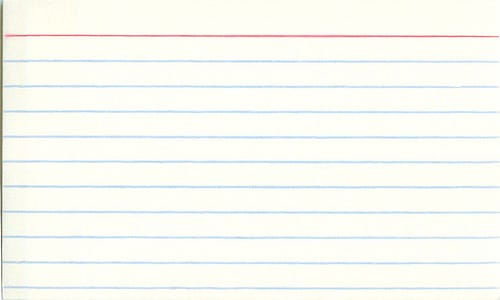
We showed up, well, she was still writing, so we had to sit out on the front porch until she was done. She would get up at eight in the morning and write till three in the afternoon, and if the shades were down, that meant she was writing and you couldn’t come in. She had a certain time that she would write. I can’t remember if my brother and sister went or not, and this is what’s so beautiful about the story: O’Connor-unlike me-was very disciplined. We lived in Macon, Georgia, and she was in Milledgeville. My dad, when he was a younger writer, always had a mentor.

From an early age she acquired a familiarity with the great Southern storytellers of the last century, with those writers and singers engaged in a tradition that-like Williams’ music-is notable for its mysteries and peculiarity, for the way it stands outside the mainstream and resists the reductions of formula. Her husband and manager, Tom Overby, likes to stress that her wit and literary flair are of a piece with the character and habits of that region. Miller taught at several colleges in the South while Lucinda was growing up-in Louisiana, Georgia, Mississippi, Arkansas. While Williams’ art bears the trace of many forbears, the most important influence has always been that of her father, a subject she returns to often in this piece. She’s still a genre to herself, and always will be.” She doesn’t fit neatly into any of the established categories. In the first grade, he reports, Lucinda wrote a poem when assigned a project and sketched a few designs around it on the paper, frustrating the expectations of her teacher, who had set aside two tables for her students’ work, one marked “collections” and the other “crafts.” Lucinda’s card went on a table of her own, and “all these years later,” Miller writes, “the world still doesn’t quite know what table Lucinda’s work belongs on. Williams’ father, the esteemed poet Miller Williams, commemorates this quality in the liner notes to Lucinda Williams. From the twelve-bar blues of “Righteously” to the formal perfection of “Fancy Funeral”-a tune any hired songsmith in Nashville would kill to have written-to the classic existential plaint expressed by “Passionate Kisses,” a song whose catchy incantation and effortless concision are reminiscent of a Broadway showstopper, Williams has shown the ability to unite in her songs America’s many musical forms and to remind us of their ultimate similarity and perhaps indivisibility. After listening to a playlist of her songs, words like “country,” “rock,” and “folk-rock” seem fairly abstract, even arbitrary. The greatness of her songs, as with those of Charley Patton and Bob Dylan, lies precisely in the way they defy customary notions of genre or style. There is something parable-like about the story, though, for over time Williams’ weakness, her point of vulnerability in the marketplace, was gradually shown to be her major strength. “Nobody knew what to do with me,” Williams says. Her songs were too eclectic for scouts in the music industry to place in a single category, and labels such as Sony and Rounder passed on the opportunity to sign her.

Yet she did not begin to be widely recognized for her talents until middle age.

As she reveals in this memoir, which was recorded late one night in her home overlooking the San Fernando Valley in Los Angeles, Williams never considered a profession other than songwriter. Later this year she plans to release a double album of new material.Īll of this activity, you might say, evens the scales, makes up for time lost earlier in her career. Lucinda Williams (1988), her third record, long out of print and sought after by collectors, was reissued in January, and she recently founded her own label. We don’t normally think of the seventh decade as being kind to popular musicians, but Williams is convinced she is in the middle of a sustained period of creativity and achievement. Of her eleven studio and live albums there are a handful-Sweet Old World (1992), Car Wheels on a Gravel Road (1998), Little Honey (2008)-that offer little if any room for improvement.

My voice is better than it’s ever been my range is better than it’s ever been.” This is quite a statement, considering that for the past twenty years Williams has been regarded as one of America’s finest living songwriters. “I was so young, so sweet and tender,” she says when shown a photograph of herself at thirty-five. L ucinda Williams recently turned sixty-one, and on the whole she feels pretty good about it.
Storyo print index cards download#
Subscribe, and download the free iOS app.ĭownload. Radio SilenceFor this week’s Longreads Member Pick, we are thrilled to share a first-time-ever memoir by the great Lucinda Williams from Radio Silence, a San Francisco-based magazine of literature and rock & roll.


 0 kommentar(er)
0 kommentar(er)
